* UPDATE 4.30.25
The investigative summary ONLY for the 2 officers.
*UPDATE 4.26.25 Gearing up for the lawsuit!
Lakeland Florida – Complaints have been filed with the Department of Justice, Ashely Moodys office of the Attorney General, The Lakeland Police department, The Florida Department of law enforcement, the Mayors office of Lakeland Florida as well as various legal and government entities. All emails and correspondence will be published at a later date.
Here are some news stories on the Lakeland PD!
FDLE POST RECORDS
VANDERPOOL HAS A CHECKERED PAST!
@LakelandPD @AshleyMoodyFL @SAO10Florida @GovRonDeSantis Here is the full complaint modified with the officers names. The Lakeland Police Department has not provided me with the body cam 9.26.24
The open records custodian I am dealing with, you can request records through her yahbriella.Riley@lakelandgov.net
Yahbriella Megumi Riley

Lakeland Police department officer Kenneth R Vanderpool
Officer Kenneth Vanderpool is the one that walked by me and stated “Fuck you, dick” This was a part of the complaint.

#OfficerKennethVanderpool #PoliceMisconduct #AbuseOfPower #PoliceAccountability #UnprofessionalConduct

Lakeland Police department officer Roberto Garibaldi

They verbally stated my son was under arrest, no crime and when they could not find a crime they had to justify Garibaldi #164 actions of his use of force. They used the Baker act on my son and they used hearsay to do it. We will know for sure when the body cam is released. They are busy editing it and chopping it up I am sure as I requested the body cam the next day on 9.16.24
In Florida, a person cannot be “Baker Acted” solely based on hearsay. The Baker Act allows for involuntary mental health examinations if there is substantial evidence that an individual is a danger to themselves or others due to a mental illness.
The decision to initiate a Baker Act typically requires specific observations or direct evidence of behavior that demonstrates this danger. While someone can report their concerns about an individual’s mental state, law enforcement officers, mental health professionals, or a court must make a determination based on direct observation or credible evidence—not just hearsay.
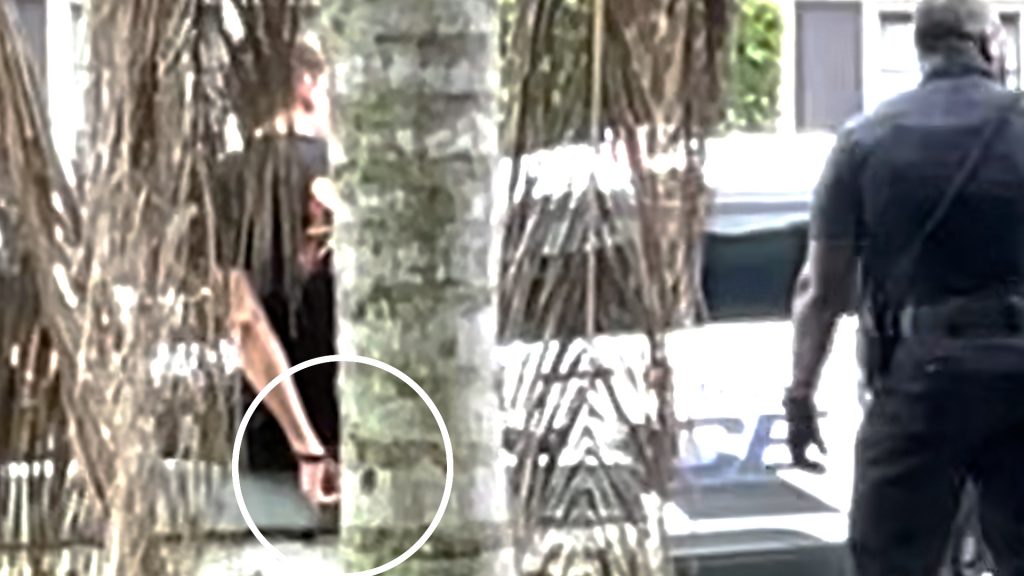
Follow on X and YouTube for updates on this case
https://www.youtube.com/@Shieldsofshame

THE COMPLAINT
The entire incident was captured on video.
On Sunday, September 15, 2024 around 11:40 am, Billy Blume was awoken by a commotion at his residence in the backyard involving his son Jay and the Lakeland Police department.
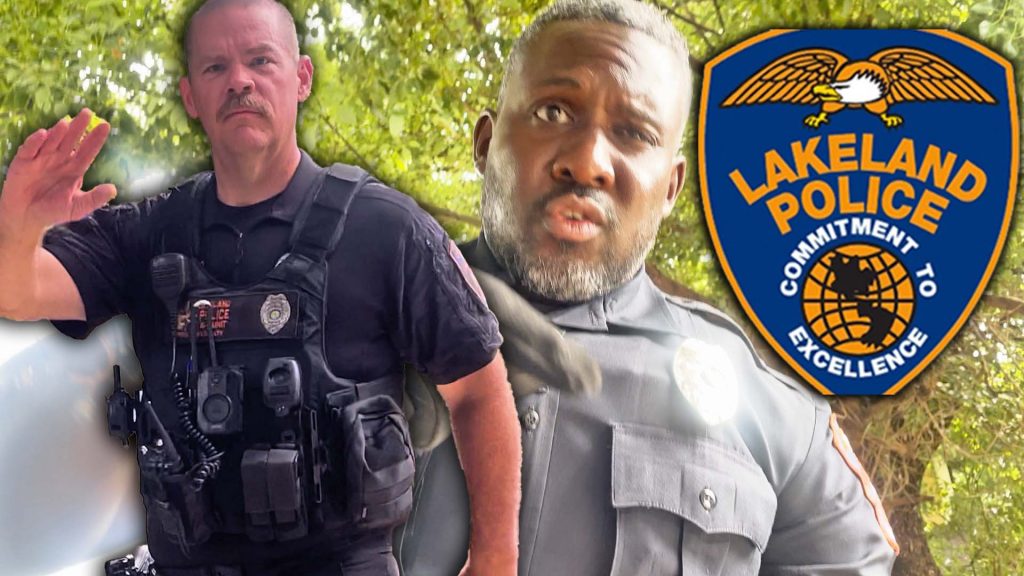
Billy Blume went to the door to witness his son Jay being patted down and taken into custody by officer Smith. Jacob did not commit any criminal offense.

No prior investigation was completed to ascertain if anyone should be detained.
Florida v. Royer (1983) – This case involves the principle that police may not detain someone without reasonable suspicion and must ensure that the detention is not longer than necessary. If the man was merely putting on his shoes and there was no true attempt to flee, his continued detention could be deemed unreasonable.
Jay was escorted to the sidewalk about 20 yards away at the edge of the driveway of the residence. Other officers began to arrive on scene.
A.W. stated “I don’t know why you guys are here”
At this time Jay was being detained by multiple officers including Officer Garibaldi #164 Jay was talking with the neighbor when officer Garibaldi #164 grabbed Jays arms and snatched them behind his back in retaliation for Jays free speech.
Jay was only speaking loud enough for the neighbor 25 yards away could hear him. The neighbor was also at the same vocal volume range.
Hartman v. Moore, 547 U.S. 250 (2006): This case deals with retaliation for exercising First Amendment rights. The court held that a retaliatory motive by law enforcement for someone’s speech (e.g., challenging or arguing) violates the First Amendment.
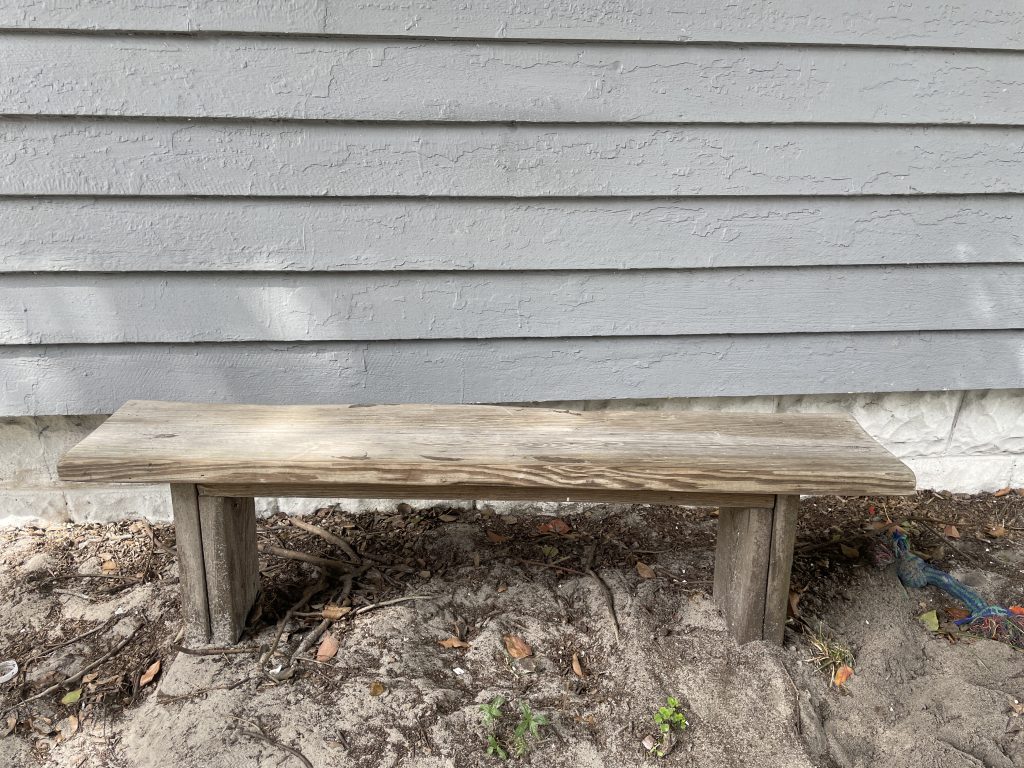
Billy was documenting the incident to ensure the safety of his son. As Billy Blume sat on the bench filming Billy Blume told his son Jacob Blume to shut up, they will beat you.
This triggered both Officer Garibaldi #164 and Officer Vanderpool #336 Officer Vanderpool #336 walked up behind Billy Blume and told Billy to “Go on in the house” Billy Blume stated he had a first amendment right to film on his private property. Officer Vanderpool #336 the stated “You don’t have a first amendment right to talk trash, if you say you’re going to beat people” Billy never stated that he would do anything to anyone.
Billy Blume then stated “I’m not talking trash” The officer then responded “or if you, yeah you’re being recorded by this too” The officer points to his body camera and seems agitated by the fact Billy Blume is filming him and the entire encounter.
Glik v. Cunniffe (2011) – First Circuit Key Issue: This case reaffirmed the right to record police officers performing their duties in public. In Glik, the court ruled that recording police officers is a clearly established First Amendment right, as long as it doesn’t interfere with police work. Relevance: Filming from the man’s yard does not constitute interference, and any retaliation for recording could violate this clearly established right.
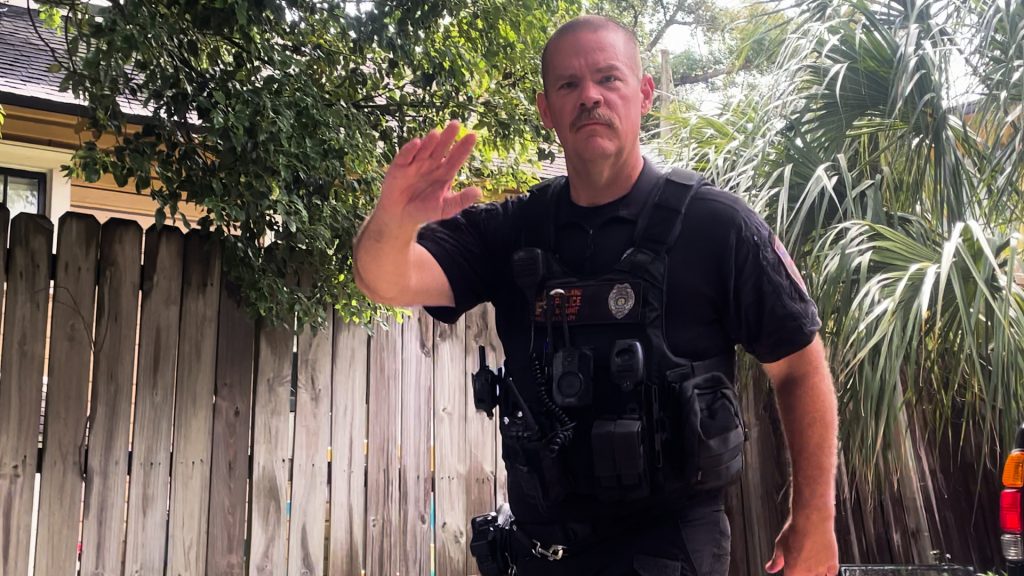
Officer Vanderpool #336 then goes on to state “If you’re gonna sit there and say you’re gonna beat people, you are going to leave this scene, because you’re antagonizing or you’re going to go in the back of the car with him”
This is a clear violation of the first amendment to threaten arrest with a lie the officer made up. Officer Vanderpool #336 threatened arrest based on a lie as Billy Blume was only warning his son.
This can clearly be heard in the video Billy Blume recorded.
Houston v. Hill (1987) The Supreme Court struck down a municipal ordinance that made it illegal to interrupt a police officer in the performance of their duties. City of Houston v. Johnson (1989) Holding: A person cannot be arrested merely for being disrespectful or offensive toward police officers.
Billy Blume was never disrespectful towards the officers in any way.
As Officer Vanderpool #336 walks away. Officer Garibaldi #164 approaches Billy Blume from the opposite direction with handcuffs in his left hand, this can be can be seen in the video. Billy Blume is sitting on a wooden bench in his yard at this time and is posing no threat.
As Officer Garibaldi #164 leans in about 2 feet from Billy’s face pointing his finger in a hostile and aggressive manner Billy is forced to remain silent and his right to free speech stripped as Billy was afraid of physical harm during this tense moment.

The implication was immediate physical harm and arrest. Graham v. Connor (1989): The Supreme Court established that all claims of excessive force, whether deadly or not, should be analyzed under the Fourth Amendment’s “reasonableness” standard. The officer’s conduct must be objectively reasonable based on the circumstances. An officer using hostile language and threatening conduct, such as holding handcuffs in an aggressive way, may also raise questions about abuse of power or intimidation. Law enforcement officers are expected to act professionally and avoid unnecessarily escalating situations, particularly when no crime is being committed.
Officer Garibaldi #164 states the following: “You want to continue?” “You want to continue, I don’t care” Badge 164 referenced my filming him when he states “I don’t care” “You can record me, this is re.. you record…” “I’m recording you too right now”
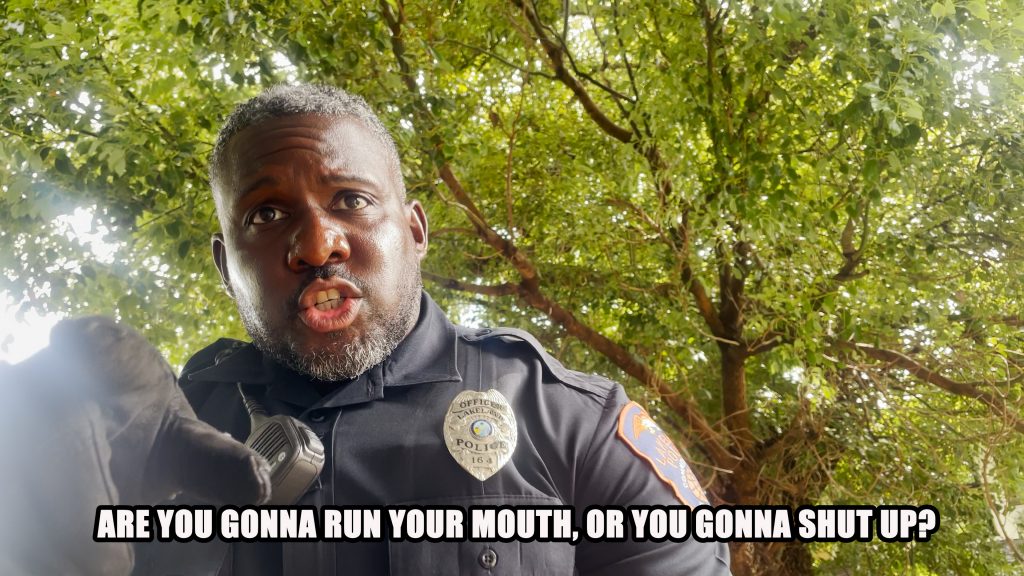
At this moment Officer Garibaldi #164 takes a hostile and aggressive stance in his body language, manner and tone of voice and gets closer to Billy.
Billy is still sitting at this time. Officer Garibaldi #164 then goes on to state “Are you gonna run your mouth, or you gonna shut up?” “Which one you going to do?” Billy Blume stated “I’m not answering anymore questions” Officer Garibaldi #164 responded “ok alright” Officer Garibaldi #164 gives Billy Blume a nasty look and walks off.
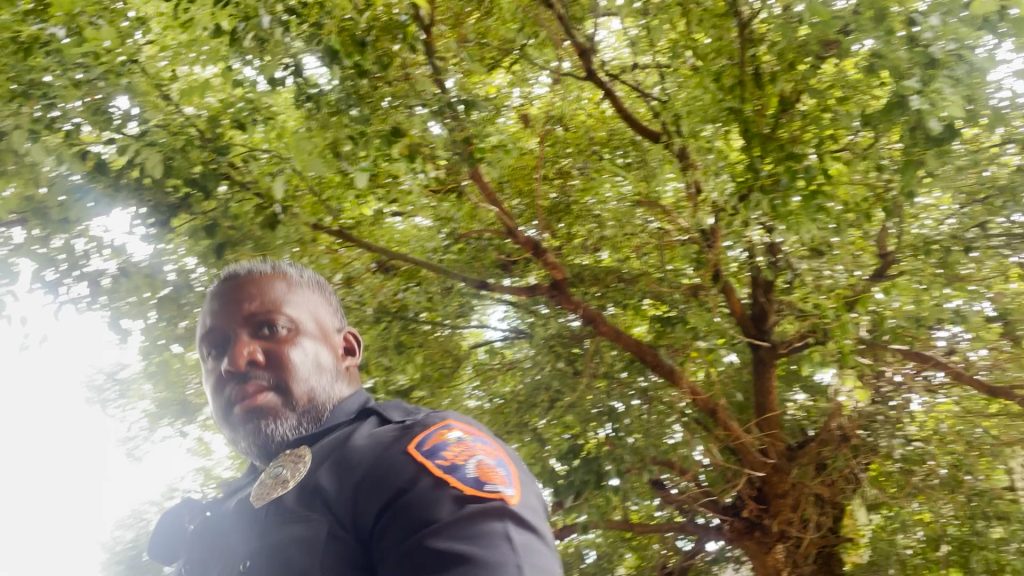
Officer Garibaldi #164 then returns to the location of Jacob Blume on the sidewalk where Jacob Blume has been placed in handcuffs and detained.
Officer Vanderpool #336 then comes back around and waves at the camera and states “hey how ya doing” Officer Vanderpool #336 then stated “Nobody cares that you record that” Billy Blume then tells the officer “You’re really unprofessional, you know that?” Officer Vanderpool #336 the states “Fuck you, dick”
Billy Blume then advised Officer Vanderpool #336 he would be filing a complaint on him.
As two officers walked by Billy Blume, Billy asked what their names were, they responded Smith and Claxton Billy Blume then asked if their body cams were on and they stated yes. Officer Claxton then stated “No they’re just for decoration” Billy Blume advised how professional the response was and advised he would be filing a complaint on Clayton as well.
Jay was arrested and taken to a medical facility under the Baker Act on hearsay. Based on something someone else stated, it is unknown what that statement was. However Jay did not indicate at any time he was having any kind of mental episode. In Florida, a person cannot be “Baker Acted” solely based on hearsay. The Baker Act allows for involuntary mental health examinations if there is substantial evidence that an individual is a danger to themselves or others due to a mental illness.
Baker Act and Due Process Violations: O’Connor v. Donaldson, 422 U.S. 563 (1975): This case holds that a state cannot confine a person who is not a danger to himself or others without due process. If Jacob did not exhibit any behavior that indicated he was a threat, his involuntary commitment under the Baker Act could be unconstitutional under this case. Addington v. Texas, 441 U.S. 418 (1979): This case reinforces the need for clear and convincing evidence before involuntarily committing someone for mental health reasons. Without such evidence, Jacob’s Baker Act detention could be a violation of his due process rights.
At this time Lakeland Police department officer Kenneth Vanderpool #336 had left the scene.
17 hours later Jay was released. Jacob stated the medical staff said LPD brings people in frequently when they can’t find a crime they committed. The medical staff expressed their concerns to Jacob about this.
Officer Roberto Garibaldi #164 walked by Billy Blume, who was now standing at the edge of the driveway, Billy asked to speak to a supervisor.
The conversation:
Billy “Sir, I’m requesting a supervisor”
Officer Garibaldi #164 “Ok” Badge 164 “You can talk to them”
Officer Garibaldi #164 points to other officers parked on the side of the road about 20 yards away.
Billy “What’s your name? What’s your name?”
Officer Garibaldi #164 “Officer Garibaldi”
Billy “what’s your badge number?”
Officer Garibaldi #164 “164”
Officer Roberto Garibaldi #164 “Why do you need a supervisor?”
Officer Roberto Garibaldi #164 “I can call him right now for what?”
Billy “I just want to talk to him about you!”
Officer Roberto Garibaldi #164 “For me? Ok”
Billy “Yeah”
Billy “You’re unprofessional”
Officer Roberto Garibaldi #164 “ok”
Billy “Very unprofessional”
Officer Roberto Garibaldi #164 “And you for being”
Officer Roberto Garibaldi #164 “You know”
Billy “For recording you?”
Officer Roberto Garibaldi #164 “Yeah, I don’t care”
Billy “it’s a first amendment violation to retaliate on me for filming you!”
Officer Roberto Garibaldi #164 repeatedly states “I don’t care” 6 times At this time other officers were going to come deal with Billy for his free speech once again and Officer Garibaldi #164 states to them “No, no, no, he’s fine he’s fine he’s fine” Officer Roberto Garibaldi #164 continues to chastise Billy Blume for him recording the incident and speaking to his son By stating “for you, being an adult, you act like a child” Further retaliating on Billy Blume for his filming as at no time did Billy Blume get loud and was only documenting the encounter
City of Cumming v. Smith (2000) – Eleventh Circuit
Billy Blume again expresses his concerns for professionalism of the actions of Officer Roberto Garibaldi #164 And again asks where the supervisor is. Once the call ended the supervisor Sergeant Hall arrived to speak with Billy Blume. Hall did not seem to be concerned about the events that took place so Billy ended his encounter so no more of his words could be twisted and used against him.
I am asking for a full review of the facts, interviews of the officers, review of the federal civil rights criminal misconduct by Officer Garibaldi #164 and Officer Vanderpool #336.
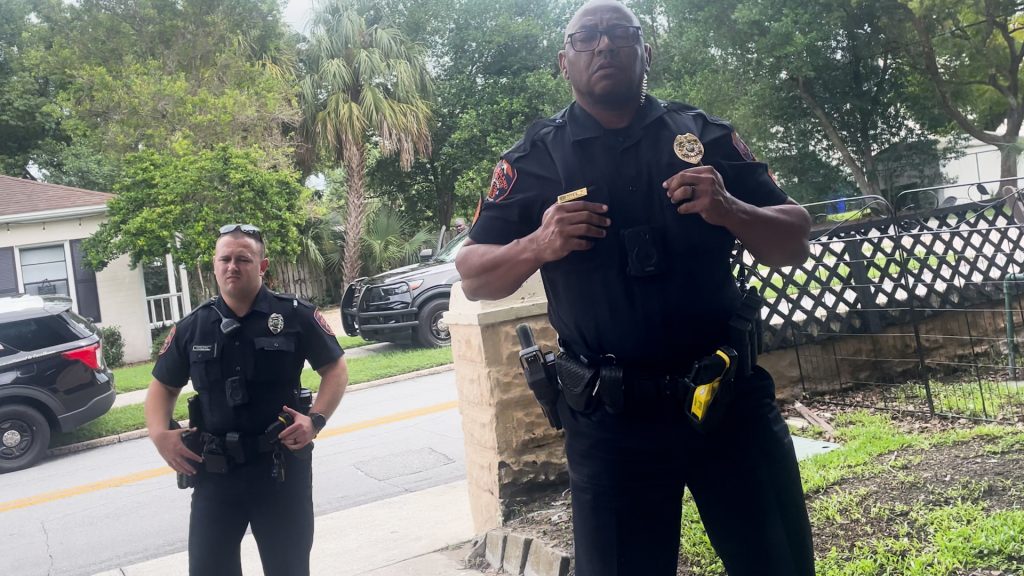
Case law summary
A man is filming police from his yard and the police retaliate against him for his speech (telling his son to stop talking or warning him about potential police abuse) and filming—closely aligns with a few key legal principles, including First Amendment protections for free speech and the right to record police. Several case laws are relevant:
1. Fordyce v. City of Seattle, 840 F. Supp. 784 (W.D. Wash. 1993)
- Key Issue: This case established the right to film police officers in public spaces as long as the person filming does not interfere with police duties. In this scenario, the man filming from his yard has a First Amendment right to record police actions without interference or retaliation.
- Relevance: Even though the filming is occurring in the man’s yard, courts have recognized that the right to record extends to any location where a person has a legal right to be, including their own property.
2. City of Houston v. Hill, 482 U.S. 451 (1987) – U.S. Supreme Court
- Key Issue: This case dealt with a citizen who verbally confronted police officers while they were questioning another individual. The Supreme Court ruled that the First Amendment protects individuals’ right to verbally challenge or criticize police officers without facing retaliation.
- City of Houston v. Hill, 482 U.S. 451 (1987)
- Relevance: The man’s statement telling his son to stop talking (or warning of potential police abuse) would be considered protected speech under this case. The police retaliating against him for this speech would likely violate the First Amendment as interpreted in Houston v. Hill.
3. Glik v. Cunniffe (2011) – First Circuit
- Key Issue: This case reaffirmed the right to record police officers performing their duties in public. In Glik, the court ruled that recording police officers is a clearly established First Amendment right, as long as it doesn’t interfere with police work.
- Relevance: Filming from the man’s yard does not constitute interference, and any retaliation for recording could violate this clearly established right.
4. City of Cumming v. Smith (2000) – Eleventh Circuit
- Key Issue: This case upheld the right to videotape police officers as part of an individual’s First Amendment rights. The Eleventh Circuit, which includes Georgia, recognized that citizens can record police activity without interference, provided they are not disrupting law enforcement functions.
- Relevance: The man recording from his yard, similar to this case, is protected under the First Amendment, and retaliatory action by police would violate his constitutional rights.
Conclusion:
In this scenario, both the man’s speech (warning his son about potential police abuse) and his right to record are protected under the First Amendment. Cases like Houston v. Hill, Fordyce v. City of Seattle, Glik v. Cunniffe, and City of Cumming v. Smith establish that citizens can film police and engage in speech without retaliation, as long as they do not interfere with police work. The officers retaliating for either the man’s speech or filming could be in violation of these established legal precedents.
Baker Act and Due Process Violations:
- O’Connor v. Donaldson, 422 U.S. 563 (1975): This case holds that a state cannot confine a person who is not a danger to himself or others without due process. If Jacob did not exhibit any behavior that indicated he was a threat, his involuntary commitment under the Baker Act could be unconstitutional under this case.
- Addington v. Texas, 441 U.S. 418 (1979): This case reinforces the need for clear and convincing evidence before involuntarily committing someone for mental health reasons. Without such evidence, Jacob’s Baker Act detention could be a violation of his due process rights.
#CivilRightsViolation #PoliceMisconduct #FreeSpeech #FirstAmendment #FourthAmendment #UnlawfulDetention #PoliceAccountability #BodyCamFootage #OpenRecordsRequest #TransparencyMatters #Retaliation #PublicRecords #PoliceAbuse #ConstitutionalRights #BakerActAbuse #FreedomOfPress #ExcessiveForce #LakelandPolice #JusticeForAll #DOJComplaint #KennethVanderpoo #lakelandpd #RobertoGaribaldi #bakeract
Requests sent for training records sent 9.26.24
Florida Department of Law Enforcement
FDLE Office of the General Counsel
Public Records/ Records Custodian
you need open records for The Florida Department of Law Enforcement? Email your request to publicrecords@fdle.state.fl.us
Disclaimer: This webpage is not an official government page or an emergency line. It is dedicated to displaying information about police misconduct and naming the agencies involved. The content provided here is for informational purposes only and does not constitute official records or legal advice. In case of an emergency, please contact your local authorities or dial 911. For official information, please refer to the appropriate government or law enforcement websites.
police misconduct law enforcement accountability public safety officer misconduct police transparency police oversight misconduct reporting police ethics public trust community safety law enforcement agencies police corruption misconduct exposure officer integrity justice reform police investigation citizen rights misconduct database police reform public accountability
#PoliceMisconduct #LawEnforcement #Accountability #PublicSafety #OfficerMisconduct #PoliceTransparency #PoliceOversight #MisconductReporting #PoliceEthics #PublicTrust #CommunitySafety #LawEnforcementAgencies #PoliceCorruption #MisconductExposure #OfficerIntegrity #JusticeReform #PoliceInvestigation #CitizenRights #MisconductDatabase #PoliceReform #PublicAccountability
Visit the Youtube counterpart to this website where the videos are located.
Please consider contributing to the Open Records Fund
https://gofund.me/8b866727
Cashapp $madvideos
Venmo @madvideos
PayPal madvideos@gmail.com
Thank you
